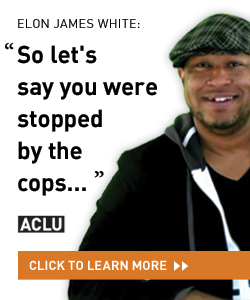Remaining silent is a right that should be exercised more often by people suspected of committing crimes, but unfortunately, people’s desire to explain themselves and tactics used by police oftentimes overcome a person’s better judgement. The best time to contact a Jacksonville criminal defense attorney is before you’ve talked to the police. In an ideal situation, you should speak with a criminal defense lawyer even before you’re ever arrested.
The U.S. Constitution and the Florida Constitution, both, protect a person’s right against self-incrimination, meaning that a person can’t be forced to testify against himself or herself. In essence, a person cannot be forced to confess wrongdoing. These provisions are the source of the “Miranda” warnings that you often hear recited to suspects in crime dramas, such as “Law and Order”. The most prominent and important part of the warning is that the suspect has the right to remain silent; remaining silent is a great idea! For you protection, other than basic information like your name, etc, the only thing you should communicate with police about is your desire to have an attorney present.
Clients often think that there is no harm in speaking with an officer or a detective if the client has nothing to hide or hasn’t done anything wrong. The truth is that officers and detectives are searching for any information that can be used to solve the alleged crime, and a confession is the grand prize, even if you don’t realize you’ve confessed.
Continue reading




 Both extremes, pro- and anti-gun groups, alike, have validity to the concerns that they have surrounding the issue. As a United States citizen, I want the full protections and benefits of constitutional rights that have been guaranteed to each of us, although, I feel somewhat uneasy at the thought of people walking around openly with guns in their hands or on their hips like cowboys. However, my feelings and the feelings of those that agree or disagree is not what are important. The important thing to consider is what the law requires, specifically the U.S. Constitution and the Florida Constitution.
Both extremes, pro- and anti-gun groups, alike, have validity to the concerns that they have surrounding the issue. As a United States citizen, I want the full protections and benefits of constitutional rights that have been guaranteed to each of us, although, I feel somewhat uneasy at the thought of people walking around openly with guns in their hands or on their hips like cowboys. However, my feelings and the feelings of those that agree or disagree is not what are important. The important thing to consider is what the law requires, specifically the U.S. Constitution and the Florida Constitution.



 Florida law, under
Florida law, under 